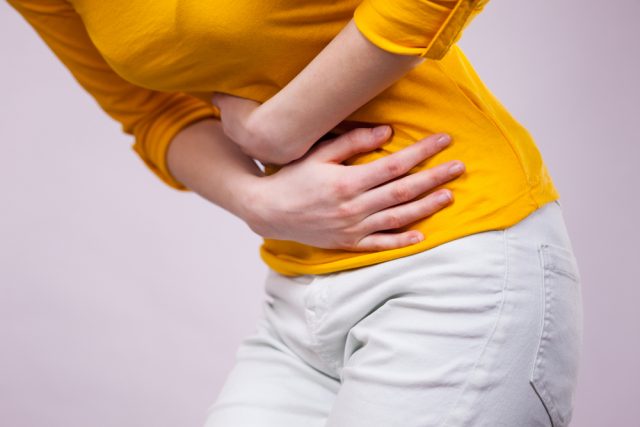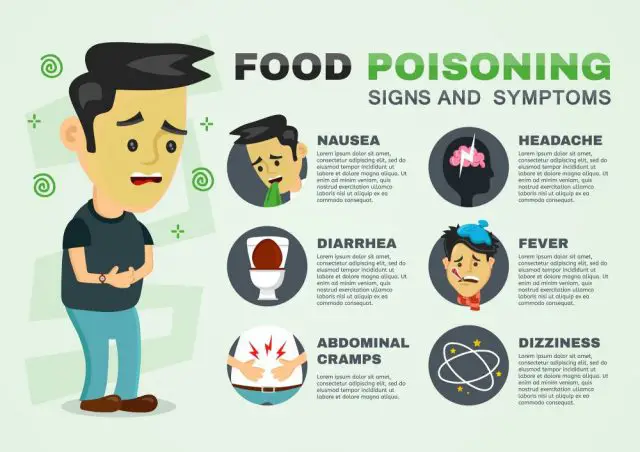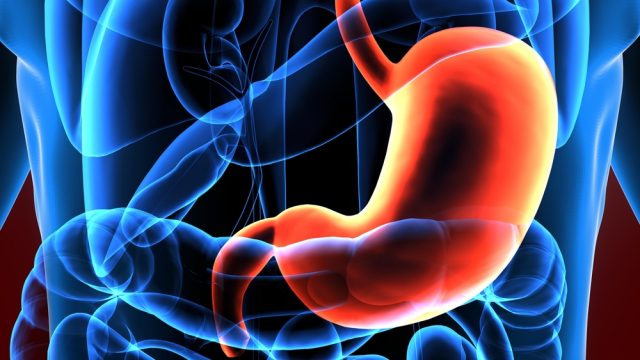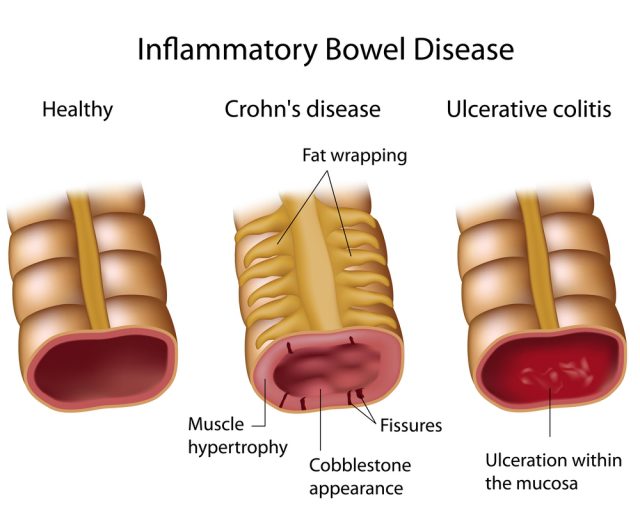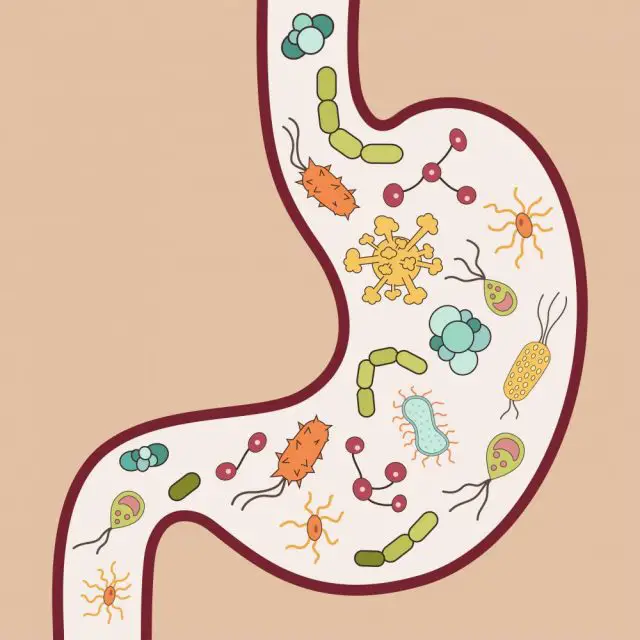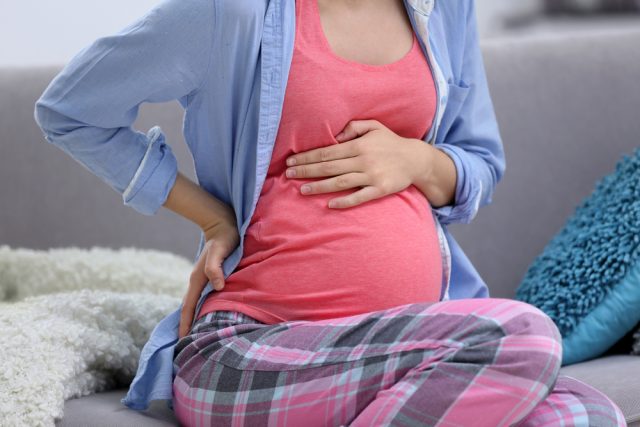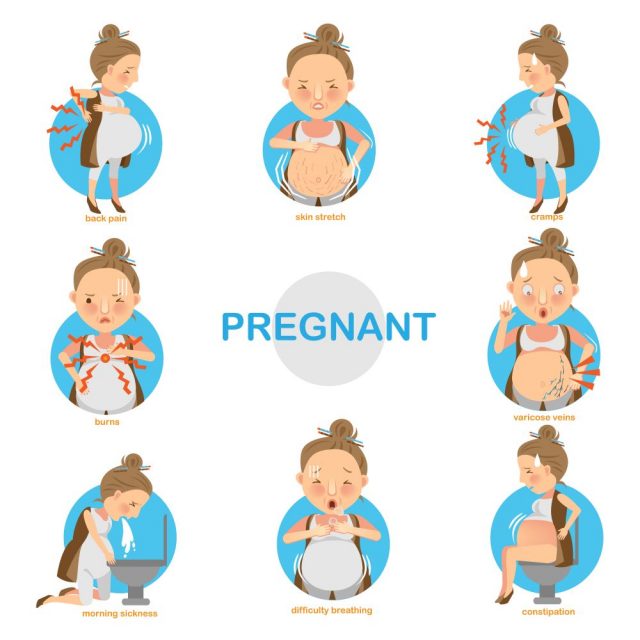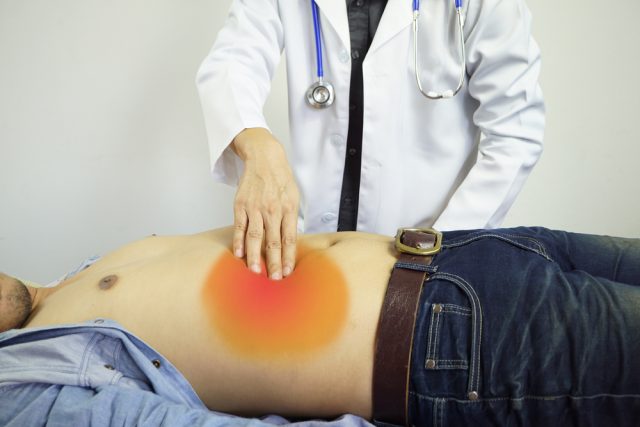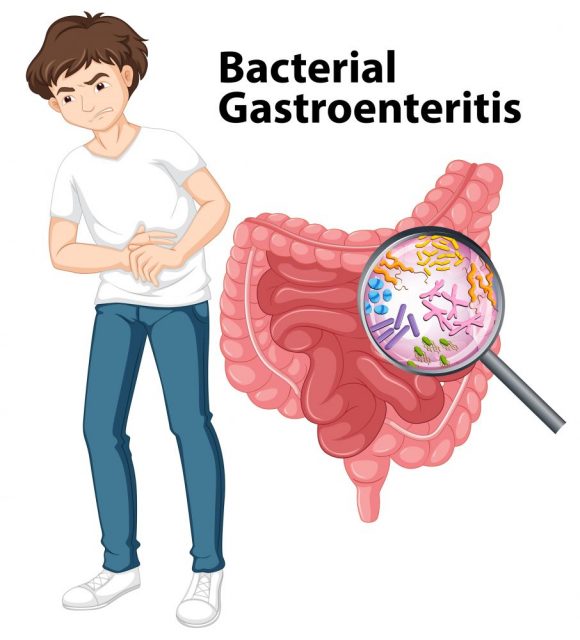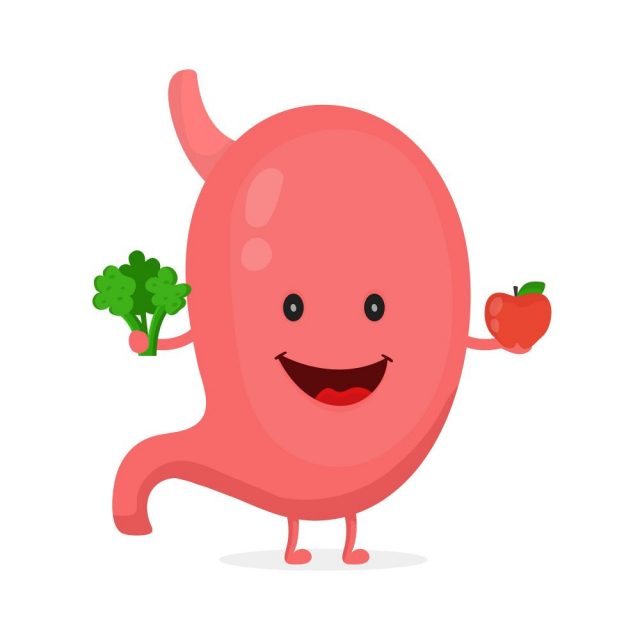Stomach Cramps
Introduction
The term “stomach cramps” is used nonmedically to describe pain in the upper or mid abdomen. The medical term for such pain is “abdominal pain,” or pain in the belly area. Though it may be felt in the stomach area, stomach cramps causes can come from a variety of organs, including the small intestine, the stomach, the colon, the liver, the gallbladder, and the pancreas. When someone says that they have stomach cramps, it can refer to a range of symptoms, including but not limited to true muscle cramps of the abdominal area.
Common Causes of Stomach Cramps
There are a few different common causes for stomach cramps that may cause you discomfort. They include food poisoning, gas, indigestion, lactose intolerance, inflammatory bowel disease, or infections.
Food Poisoning
Food poisoning is a relatively common condition, affecting millions of people in the US alone every year. Symptoms can include vomiting, diarrhea and stomach cramps. Most of the time, food poisoning will resolve on its own, and rather quickly. In the event that a person does not seem to be getting better, has a fever, has symptoms of dehydration, or has blood in their stool, they should seek medical attention. Treatment for food poisoning usually focuses on keeping the sick person hydrated through their illness, and prevention is ultimately the main way to avoid the illness – keep hands clean, keep preparation areas clean, and make sure foods are cooked thoroughly.
Gas
“Gas” is a term that encompasses both bloating and excessive gas. Most of the time, lower intestinal gas is produced in the colon and does not transmit to the upper intestines, however, excessive gas is usually characterized by excessive burping, excessive flatulence, or a full sensation in the abdomen. Symptoms are only of concern if the symptoms become chronic or don’t go away. Symptoms of excessive gas can also include bloating and stomach cramps. Bloating is the feeling of the abdomen being more full than it should be, but it is not the same as distention. Continued distention of the abdomen should be treated by a medical professional.
Indigestion
Indigestion is a disease of the gastrointestinal organs, usually the stomach and small intestine, but can sometimes include the esophagus. It is considered a chronic disease, where symptoms may fluctuate throughout many months or years, as intensity and frequency of attacks may vary. Symptoms of indigestion include bloating, belching, early satiety (feeling full after a small amount of food), abdominal swelling or distention, stomach cramps and nausea. Most often, the symptoms are stomach cramps after eating. It is important to note that indigestion (or the feeling of it) is a symptom of a heart attack, so people with heart problems should be careful.
Lactose Intolerance
Lactose intolerance is an inability to digest lactose, which is a sugar contained in milk, caused by a deficiency in the enzyme lactase, which allows lactose to be absorbed when in the intestine. As a result, the consumption of lactose by a lactose intolerant person will often result in gastrointestinal symptoms like stomach cramps after eating, diarrhea, flatulence, abdominal pain, indigestion, bloating, distention, and nausea. Constipation is not a symptom, and usually lactose intolerance develops at a young age.
Inflammatory Bowel Disease
There are two culprits behind inflammatory bowel disease – Crohn’s disease and ulcerative colitis. The behaviors of each disease differ from each other. Ulcerative colitis involves the large intestine only, while Crohn’s disease involves the entirety of the gastrointestinal tract. Both can cause ulcers within the intestine.
Infections and Stomach Flu
There are various other things that can cause stomach cramps and abdominal pain, including infections and gastroenteritis, commonly known as the stomach flu. The symptoms depend on the cause, but typically include diarrhea, nausea, and vomiting, as well as stomach pain. If the infection is bacterial in nature, it can also include fever and bloodied diarrhea. Gastroenteritis can also be a product of food allergies. It can be contagious or non-contagious – contagious causes are usually the result of eating or drinking contaminated substances, while non-contagious causes include parasites, allergies, drugs, toxins, or medication side effects. Typically, stomach flu is caused by contagious viruses, or by contagious bacteria such as staph, salmonella, E.coli, and more. Most people with stomach flu or infections require no treatments, however if the cause is bacterial, people may seek antibiotics.
Stomach Cramps and Pregnancy
For those that are pregnant, stomach cramps and abdominal pain can be on two ends of a spectrum – either it is harmless and common, like headache and stomach cramps, or it is a serious problem. If the pain doesn’t go away, seek medical attention, especially if you have stomach cramps in addition to the following symptoms:
- Vaginal spotting, bleeding, or unusual discharge
- Fever and/or chills
- Lightheadedness or dizziness
- Urinary discomfort or pain
- Nausea and vomiting
Normal Stomach Cramps
Stomach cramps in pregnancy are often normal in early pregnancy, and are considered harmless as they are usually just gas and bloating, constipation, round ligament pain, or cramps during orgasm. Cramps can come on as you change position, or you may feel dull pain after a particularly activity-filled day. In later pregnancy, stomach cramps may be caused by Braxton Hicks contractions, starting in mid-pregnancy through later pregnancy. If they begin coming at relative intervals, are coming frequently, are accompanied by lower back pain or vaginal bleeding, or you feel any other symptoms of premature labor, call your medical provider.
Abnormal Stomach Cramps
Stomach cramping during pregnancy should not be severe or persistent, nor should it come with other symptoms, and especially not nausea, vomiting, headache, fever, or vaginal bleeding. In early pregnancy, cramping with vaginal bleeding can be a sign of ectopic pregnancy or miscarriage, and if the pain is in your upper abdomen, you may be affected by a serious abdominal infection known as peritonitis.
Ectopic Pregnancy
An ectopic pregnancy happens when the egg is fertilized and implants outside the uterus and into one of the fallopian tubes instead. It can be life threatening, and can cause cramping as well as other symptoms, including pelvic pain, vaginal spotting, vaginal bleeding, pain during physical activity, pain during bowel movements, pain during coughing, or pain in your shoulder.
- Seek Immediate Medical Attention if you show signs of shock, if you’re bleeding heavily, have racing pulse dizziness, fainting, and/or pale or clammy skin. These could be symptoms of a ruptured fallopian tube.
Miscarriage
A loss of pregnancy within the first 20 weeks is considered a miscarriage. The first symptom is usually light or heavy vaginal bleeding, which is followed by pain in the abdomen anywhere from a few hours later to a few days later. Pain in this case may come in the form of stomach cramps, may be persistant, mild, or sharp. It may also feel like pelvic pressure or lower back pain. Call your provider if you have symptoms of a miscarriage.
- Seek Immediate Medical Attention if you have severe pain or heavy bleeding.
Treatment for Stomach Cramps
In order to treat stomach cramps, it is important to figure out the cause. In addition to the causes listed above, stomach cramps can be a result of muscle strain, dehydration, or constipation.
Home Remedies
For immediate relief in stomach cramps, you can try a variety of different things. Heat can help relax muscles, while massage can also help if the cause is a muscle strain. For an upset stomach and cramping or gas, consider chamomile tea. If dehydration is a concern, fluids are highly important, especially if they have electrolytes, so invest in some sports drinks or eat bananas. However, be careful if you have a past history of kidney problems, as potassium and other electrolytes may rise to dangerous levels.
- Seek Immediate Medical Attention if you develop dizziness in addition to dehydration or pass out, as this means you have lost a lot of fluid. You need to go the emergency room so that they can give you IV fluids as your body may go into shock, which will damage heart, liver, brain, and kidney function.
Pain relievers can help stomach spasms, but must be used with caution as ibuprofen and other over the counter pain medications can cause gastric ulcers and kidney or liver damage. Antacids can be used to help stomach acid that causes gastritis, and resting during abdominal pain can always be considered helpful.
When to See a Doctor
Gastroenteritis or gastritis that is caused by bacteria should be treated with antibiotics. For inflammatory bowel diseases, such as Crohn’s disease or UC, aminosalicylates or corticosteroids must be prescribed by a doctor. If you are suffering from spasms of the stomach, then you may require antispasmodic medications. Last but not least, if your symptoms persist and are not getting better using home remedies, you run a high fever, you are severely dehydrated, or you have blood in the stool or in your vomit, you need to seek medical attention immediately.
Prevention
Stomach cramps treatment is not the only way to help avoid stomach cramps in the future. Treating the cause of them is important as well, but if your stomach cramps are caused by gas, dehydration, or muscle strain, there are a few ways to prevent cramps and pain from happening in the future.
Exercising in a correct and proper way can help reduce the chances of muscle strain. If you work your muscles too hard or incorrectly, it is possible to severely injure yourself, so make sure that you rest when you need to. In addition to that, stay hydrated, both when working out and throughout the day. Dehydration can cause stomach cramps.
Changing your diet may be a solution, as it can reduce stomach cramps caused by gastritis, gas, inflammatory bowel disorders, and more. Limit fiber intake, which can cause gas, or perhaps eat more fiber to help with constipation or gastritis. Limit alcohol consumption, as well as spicy foods – the spice can irritate your stomach. Fatty foods can increase your symptoms and should be avoided.
Conclusion
Most of the time, stomach spasms and stomach cramps can be considered normal, even during pregnancy. It is only when symptoms persist or when accompanied by other, worsening symptoms that medical treatment needs to be sought. If symptoms are persistent and you don’t seem to be getting better, or if stomach cramps are accompanied by fever and other symptoms mentioned above, seek medical attention. Though stomach cramps are generally harmless, it is important to remember that only a medical professional can make that designation, so it is often better to be safe rather than to be sorry later. High fevers, dehydration, blood in the stool, vomit, or discharge should not be discounted, especially if you are pregnant, and immediate medical attention may be required.

